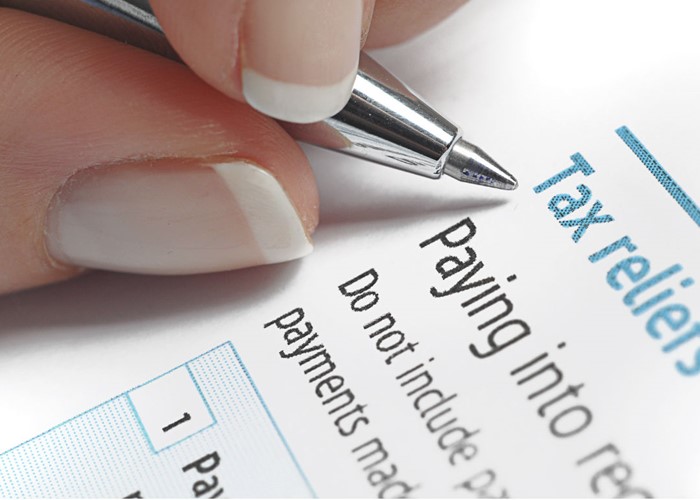How to avoid tax...legally

Avoidance has become a dirty word in tax planning, even though it is actually completely legal. In fact, it is so widespread you may be a closet tax avoider and not even know it!
A new report from the Institute of Fiscal Studies (IFS) claims that the forthcoming changes to personal taxation, taking effect in April, will mean that approximately 750,000 more taxpayers will become higher rate (40%) taxpayers.
With finances tight in many households, coupled with the Bank of England’s depressing predictions on inflation, paying more tax on top of everything else will not be welcome news.
They say the only things you can’t avoid in life are death and taxes, but is that really true?
Tax avoidance is not tax evasion
There is a clear and important difference between tax avoidance and tax evasion, famously quoted as being the “thickness of a prison wall." Jockey Lester Piggot was found guilty of tax evasion, which is illegal, and enjoyed a stay at Her Majesty’s pleasure as a result.
Tax avoidance, on the other hand, is completely and perfectly legal and can be summed up as arranging your affairs in the most tax-efficient way available under the law. The problem we face is that politicians and commentators seem to have developed a highly sensitive moral compass and are objecting to tax avoidance on morality grounds. That’s right, those same expense-fiddling, second-home-flipping politicians are preaching the tenets of good tax behaviour to the rest of us.
Of course, as with everything else, there are degrees of tax avoidance, and it is undoubtedly the aggressive end of the avoidance scale that poses the moralistic challenge, rather than things on the softer, and possibly HMRC approved end. Still, surely if it’s within the law, it’s within the law, and therefore perfectly acceptable.
Related how-to guide

Cut your tax bill by thousands
Tax may be an inevitable fact of life, but there’s no reason to pay more than you have to!
See the guideTypes of tax avoidance
Nowadays, tax avoidance through the use of planning schemes has become much harder to achieve. HMRC is a much sleeker animal than it used to be, and can move swiftly to block practices that it feels are not in keeping with the ‘spirit’ of the legislation.
Also, the most complex (and most expensive) schemes sold by accountants and lawyers must declare themselves to HMRC under the DOTAS (disclosure of tax avoidance scheme) rules, meaning if HMRC doesn’t already know about a weakness in the tax law, it soon will.
But that doesn’t mean that tax avoidance is dead. Far from it. Anyone who has transferred assets into joint names, or who has taken a portion of their salary as Childcare Vouchers has been avoiding tax, as in the absence of that deliberate action taken, the resulting tax liability would have been higher.
So what can you (legally) do?
Sometimes, the best things in life are the simplest, and anyone can legitimately avoid tax in a number of easy, accessible ways.
In addition to taking childcare vouchers to save tax and NI on a proportion of salary, you can still invest in Child Trust Funds, if your child or grandchild already has one - the Government won’t contribute any more, but the tax-free vehicle for growth is still there for the utilising. And don't forget, the Government has also given the go-ahead for a Junior ISA for children.
Invest in an ISA yourself, and the fund will grow free of any income tax or capital gains tax (other than the non-refundable tax credit on dividends) or better still, invest in a pension, where you get tax relief on amounts deposited, tax-free growth, and a tax-free lump sum on retirement.
Find out how to cut your tax bill without the effort of complex tax planning.
There are other financial products, like Discounted Gift Schemes, that have a huge tax avoidance bonus. This insurance product allows you to give away large amounts of capital, continue to draw an income, and have it all deemed to be within your nil rate band (currently £325,000) for inheritance tax purposes. And HMRC not only know about it, it approves the scheme and the discounting process used.
Where possible, share income between spouses or civil partners, and do the same with capital gains - you can transfer assets between spouses at nil gain nil loss, so a quick transfer before sale means you can take advantage of another £10,100 annual exemption which could be worth over £2,800.
And talking of capital gains, why not flip your home? The provisions that allowed MPs to do it are still there (for now) so if you do own more than one property, look into how nominating your main residence could save you tax. Assuming you are making gains on property that is…
More: Get a great ISA | Does npower owe you a refund? | 15 million risk pension poverty
Comments
Be the first to comment
Do you want to comment on this article? You need to be signed in for this feature